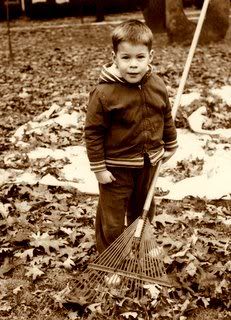When I turned on my computer I found book designer, systems genius and just-plain-interesting-thinker CJ Madigan's new blog post, "Envisioning Seven Generations," in my email inbox. If you're interested in legacy or personal stories, it's one to read (just click on its title and the link will get you to it).
CJ reminds us that once we're gone, the information and stories we take for granted in our own lives will be as unknowable to those seven generations in the future as peoples' lives seven generations ago are to us today. We assume that no one really cares, but that's just not the case. Her words spoke to me powerfully because as I organize my parents' photo collection, I'm beset with exactly the kind of bafflement she describes. Where was this picture of my great-grandparents taken? What is the name of the best man at Mom and Dad's wedding? Is this Victorian baby photo my grandmother or someone else--and if it's a grandmother, which one? When exactly did dad's family come to this country?
I don't know the answers to any of those questions, or to countless others like them, and I dearly wish I did. I feel a kind of grief when I realize that I didn't take advantage of the countless years I had to ask some of these questions;
One of the things CJ's post inspired me to do is deceptively simple: to caption the back of my own photos with things like the names of the people pictured, the place the picture was taken, and the approximate date. I've promised myself not to get perfectionistic, just to get down what I know. It's tempting to think that no one will care that one photo is of my college dorm room junior year and the next is of my off-campus apartment senior year, that this guy is my first boss and this other guy is the man I loved in my thirties. But as CJ reminded me, I can't know that for sure...and better safe than sorry.
In the spirit of this post, I'll close by telling you that the photo at its beginning is of my twin brother Andy on the lawn of our family house in Caldwell, New Jersey in 1960 or thereabouts. The front yard had thirteen majestic old trees that offered both delight (jumping in giant leaf piles) and torture (helping Mom and Dad rake) every autumn. Our property had a wall that raised it above the street by eight feet or so in the front; the white shape you can see on the ground under the leaves is a big old canvas dropcloth. In the days before day finally got a leaf blower, we raked the leaves onto it, dumped it over the wall, and raked the leaves into the gutter for pickup from there. Andy and I had small, child-friendly rakes, so maybe Dad posed him with a full-scale one for this shot. Either way, I've always loved this particular photo of Andy, with its combination of solidity and skepticism. "You've got to be kidding me," his expression seems to say; "this job's going on forever."
Subscribe to:
Post Comments (Atom)










No comments:
Post a Comment